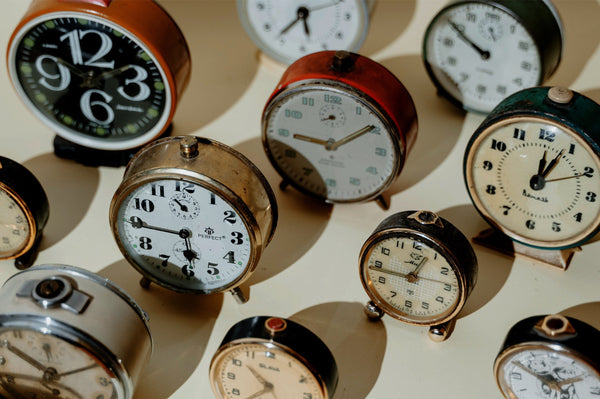WHISKEY VS WHISKY:
WHAT'S THE DIFFERENCE?
The differentiation of whiskey versus whisky comes from Irish and Scottish Gaelic dialects of the words, "uisce beatha," which mean the "water of life." During the 18th century, Irish immigration to America was on the rise. Some people believe Irish whiskey producers were looking for a way to differentiate themselves from Scotch distillers at that time...

If you're relatively new to the world of whiskey, you might be wondering whether it's whiskey versus whisky. In fact, both spellings are correct, depending on the distilled spirit you are referencing. "Whiskey" typically refers to spirits produced in Ireland or the United States, while Scotland, Japan, and Canada use "whisky" without the "e." This distinction also carries over into the plural form of each — whiskeys and whiskies. However, the "e" in American or Irish whiskey is not absolute, so you might find brands using the opposite spelling.
One helpful tip for remembering whether it's whiskey versus whisky — countries with an "e" in their name use whiskey while the others do not.
Start of Whiskey vs. Whisky
The differentiation of whiskey versus whisky comes from Irish and Scottish Gaelic dialects of the words, "uisce beatha," which mean the "water of life." During the 18th century, Irish immigration to America was on the rise. Some people believe Irish whiskey producers were looking for a way to differentiate themselves from Scotch distillers at that time. The reason is they believed Scotch production techniques were subpar compared to Irish methods.
Production Differences Between Whiskey vs. Whisky
Scotch whisky and Irish whiskey have different rules for production, which also establish further distinctions between the two. Before a spirit can be called Scotch, distillers must:
- Mature it in oak for a minimum of three years.
- Produce and mature it in Scotland.
- Produce it with 100% malted barley to label it a single malt Scotch whisky.
Like Scotch, Irish whiskey must mature for at least three years. Several notable differences with an Irish whiskey include:
- Distilling it three times.
- Distilling it in Ireland.
- Only making it at one distillery if using "single" on the label.
- A noticeable lack of smokiness due to little or no peat.
- The right to use a malt distillate, a portion of grain spirit, and a barley distillate.
American whiskey differs as there are distinct rules for bourbon and rye. Distillers must use a minimum of 51% corn with malted barley and rye for bourbon. The production method of rye is similar to bourbon, but must have 51% rye.
Taste Differences Between Whiskey vs. Whisky
Because the spelling variation corresponds with the country of origin, you will notice differences in flavor profiles with whiskey versus whisky. You'll also find more nuances between varieties produced within each country.
- Scotch whisky: Scotch whiskies come from several primary regions — Campbeltown, the Highlands, Islay, Lowlands, and Speyside, each with its own style. A Scotch is primarily distilled from barley and usually aged longer. Characteristics include peat smoke, especially those produced in Islay.
- Canadian whisky: Canadian whisky tends to be sweeter than other whisky styles, similar to a bourbon. Corn is a primary component in the mash, more like American whiskey.
- Japanese whisky: Many Japanese distillers get inspiration from Scotch production techniques. However, the flavor of a Japanese whisky tends to be softer with less bold flavors than traditional Scotch.
- Irish whiskey: Compared to Scotch, Irish whiskey tends to be sweeter and has a stronger malt characteristic. Some people pick up a "peaty" note in Irish whiskey. However, they likely notice the oak toast because Irish whiskey rarely includes peat.
- American whiskey: The predominance of corn mash is why many people consider bourbon to be on the sweeter side. Rye whiskey must have at least 51% rye, which produces spicier flavors.
While some distillers choose to deviate from the norm and spell their spirit with or without an "e," understanding the general practice of when to use whiskey versus whisky can help you determine what a spirit might taste like based on what country it comes from. If you haven't found your preferred style yet, keep experimenting and go down the rabbit hole with us!






